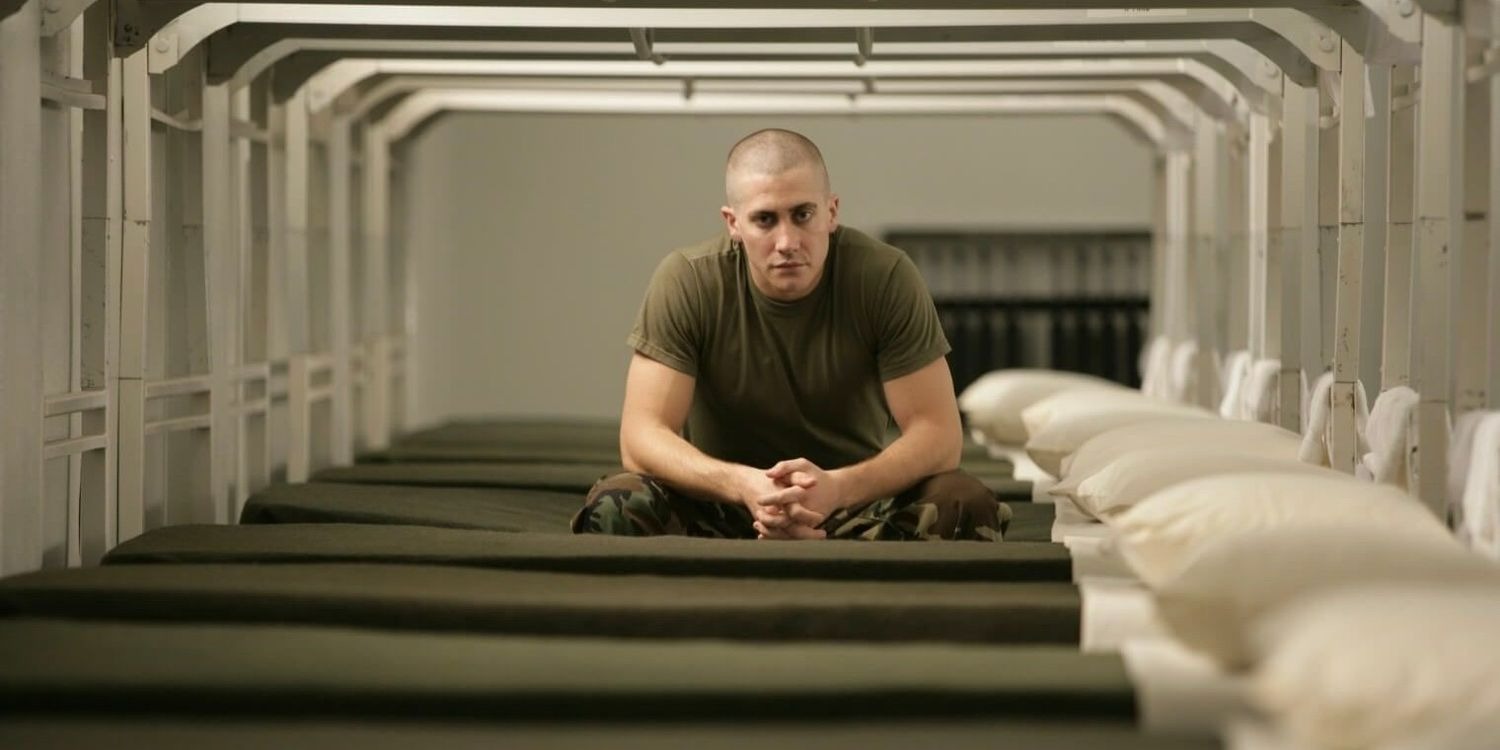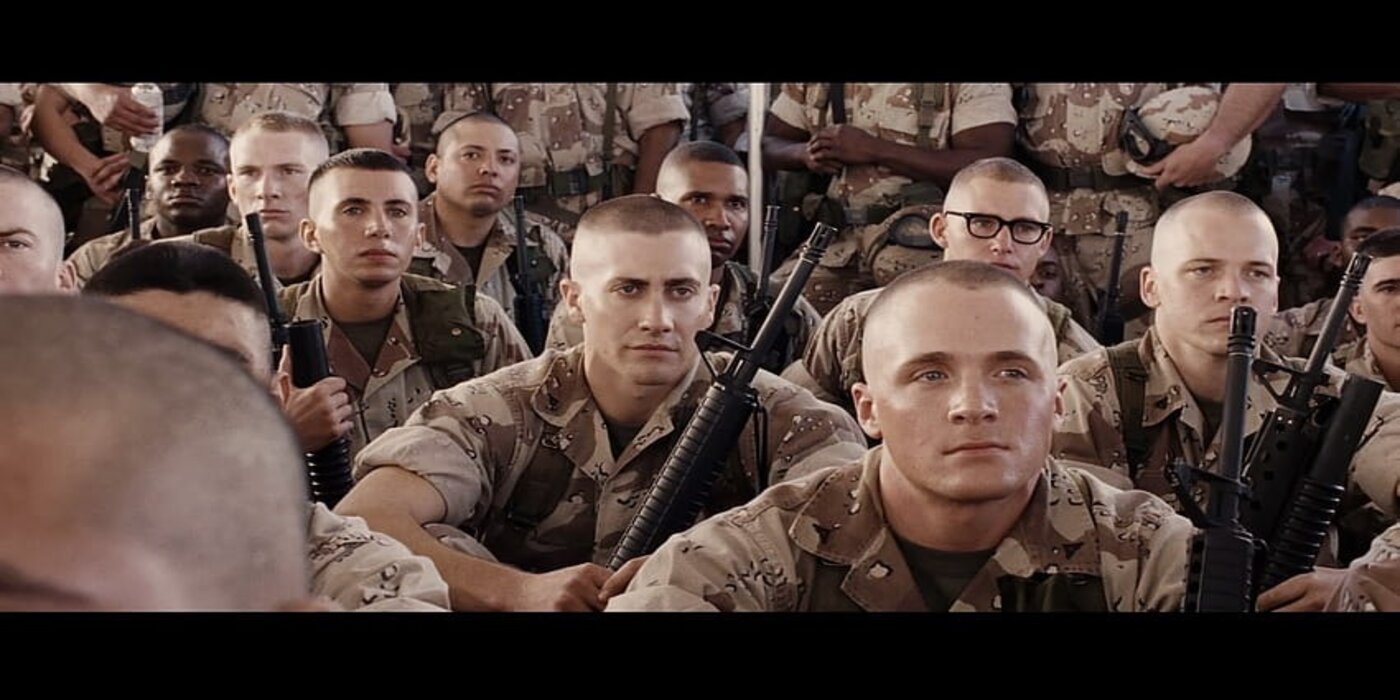In a cinematic landscape filled with war films that often revel in the grandeur of combat, “Jarhead,” starring Jake Gyllenhaal and directed by Sam Mendes, dares to challenge the disconnect between the anti-war messages within their scripts and the visually exciting portrayals of war on screen.
- The Brutal True Crime Story Behind Denzel Washington’s ‘American Gangster’
- Is ‘Saving Private Ryan’ Based on a True Story?
- The Scariest Movies On Netflix Right Now
- ‘John Wick: Chapter 4’ End-Credits Scene Explained: Is Revenge Served?
- Is ‘The Exorcist: The Version You’ve Never Seen’ the Version You Should Watch?
Released in November 2005, “Jarhead” initially faced disappointing box office numbers and mixed reviews. While critics praised the performances, many bemoaned the film’s lack of cathartic resolution. Based on the memoir by Anthony Swofford, a US Marine sniper who served in the Gulf War, “Jarhead” remains remarkably faithful to its unflattering depiction of the US Army and modern warfare.
see more : ‘Guardians of the Galaxy Vol. 3’ End-Credits Scene Explained: What’s Next for the Team?
The film immediately underscores a paradox prevalent in the war film genre: People watch war movies for the war itself. This may seem obvious, but given the efforts by filmmakers to convey critical anti-war messages, it raises questions about the contradiction within the genre. War films often preach against the horrors of war in their scripts while simultaneously indulging in the cinematic spectacle of violence, leaving audiences wondering why they are drawn to on-screen bloodshed in films that purport to be anti-war.
The historical context of war films and their relationship to propaganda has been long and contentious. While directors have attempted to distance the genre from recruitment advertising, the films’ anti-war sentiments often falter when faced with visually gripping combat sequences. “War is bad, actually,” may be a straightforward stance for a film to take, but there is a significant disconnect between the narrative and the visuals. These films may verbally condemn war, yet the camera lingers lovingly over explosions and battle scenes, seducing viewers into finding excitement in conflict.
“Jarhead” exposes this ideological split between the script and the camera in a brutal examination. The film’s protagonist, Anthony Swofford, portrayed with grace by Jake Gyllenhaal, undergoes a harrowing transformation alongside his fellow soldiers at the hands of the US Army. They are molded into “empty vessels” with a singular purpose: to engage in warfare. Yet, the intensity of their training is rarely matched with actual combat experiences. The film deftly conveys the soldiers’ unfulfilled desire for violent catharsis, painting war as a tantalizing reward perpetually out of reach.
see more : The Scariest Movies On Netflix Right Now
One pivotal scene in “Jarhead” sees the Marines enthusiastically watching the infamous ‘Ride of the Valkyries’ scene from “Apocalypse Now” to psyche themselves up for an impending assignment. They cheer as helicopters close in on civilians, and even the protagonist is not immune to the thrill, enthusiastically shouting at the screen as bombs drop on innocent civilians. This moment underscores the film’s central critique: even movies traditionally categorized as anti-war, such as “Apocalypse Now,” can be received as celebrations of war.
As a visual medium, film’s ultimate impact is dictated not just by the script but by its framing. “Jarhead” eloquently illustrates that when a war film visually insists that war is grand and important while condemning it in the script, audiences tend to remember the spectacle more vividly. The adrenaline rush, the sense of heroism – these are the elements that draw people to war films. Even the grittiest, most disturbing war films still find themselves visually glorifying war, enticing audiences to consume it as entertainment.
“Jarhead” refuses to succumb to the allure of violent impulses that often captivate viewers of war films. It starkly communicates that war is not an adventure or a noble pursuit but a traumatic, ignoble endeavor. It offers no heroism to its characters, only a sense of sorrow and the haunting knowledge that not all will successfully reintegrate into society.
In conclusion, “Jarhead” stands as a poignant critique of war films that claim to be anti-war while visually glorifying warfare. It compels audiences to confront their fascination with on-screen violence in movies that ostensibly denounce war. In doing so, it challenges the genre’s conventions and raises important questions about the power of framing in conveying a film’s message.
Source: https://dominioncinemas.net
Category: MOVIE FEATURES











